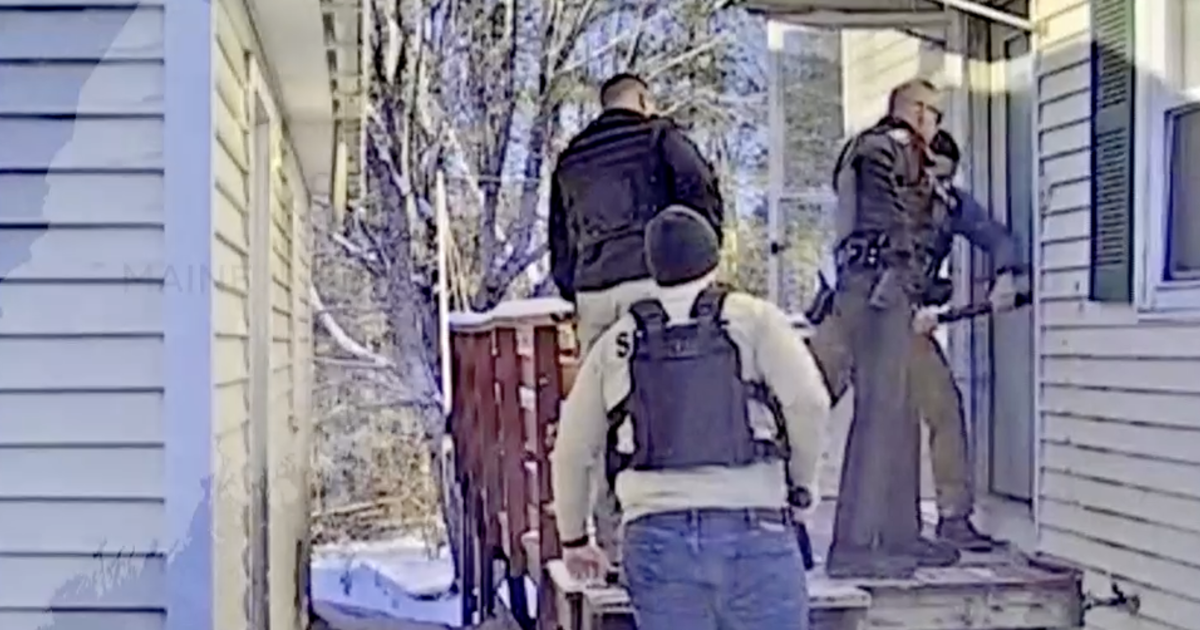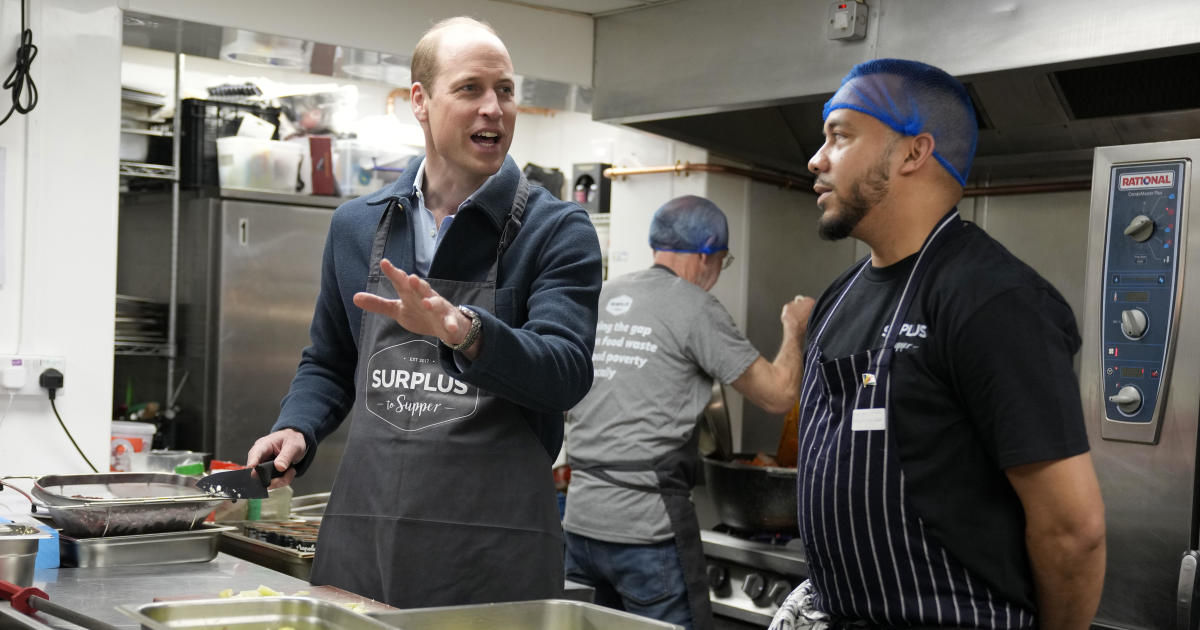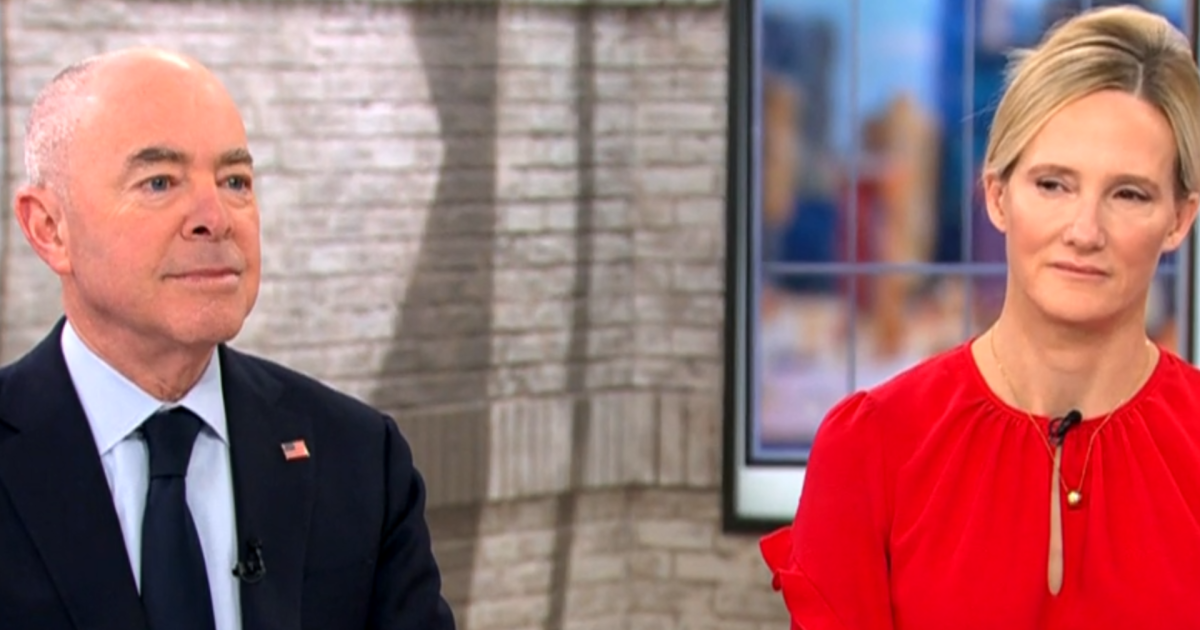Facebook's Sheryl Sandberg to CBS: "We absolutely did not pay anyone to create fake news"
A day after a searing investigation into Facebook by The New York Times, the company's chief operating officer, Sheryl Sandberg, is defending herself and the social media giant.
In her first interview since the story was published, Sandberg told "CBS This Morning" co-host Norah O'Donnell she did not know about an effort described by the Times to publish stories critical of other tech companies, an apparent attempt to deflect attention away from Facebook. The campaign was reportedly orchestrated by the consulting firm Definers Public Affairs, a Republican opposition research group hired by Facebook.
"We absolutely did not pay anyone to create fake news – that they have assured me was not happening. And again, we're doing a thorough look into what happened but they have assured me that we were not paying anyone to either write or promote anything that was false. And that's very important," Sandberg said.
The Times also reported that the firm tried to tie critics of Facebook to George Soros, the billionaire investor and philanthropist – and frequent target of conservative anti-Semitic conspiracy theories.
Sandberg said the firm was hired by "the communications team" and that she only learned about its work from the paper.
The Times report was published with the headline, "Delay, Deny and Deflect: How Facebook's leaders fought through crisis." And it was unsparing in its criticism of Sandberg and CEO Mark Zuckerberg.
Among the claims: Facebook attempted to downplay the significance of Russian activity in the run-up to the 2016 presidential election. The Times said Sandberg tried to rein in Facebook's then-security chief, Alex Stamos, who had been looking into Russian activity on the network. The Times noted that one white paper Facebook released, based on an internal investigation by Stamos, did not include the word Russia. A later blog post by Facebook also downplayed Russia's role.
In the interview Thursday, Sandberg stressed Facebook's new efforts at security. "Our strategy was to shore up the security on Facebook and make major investments there," Sandberg told O'Donnell. "It was not what I was doing nor was it the company's strategy to deflect, to deny or to hire PR firms to do things. That's not the strategy. And I was part of none of that. We've taken great steps, we've made huge investments. We've invested a ton in AI and technology and if you were following us before the election you saw those efforts pay off. We were able to take down lots of stuff over and over, over and over because we were now focused on this."
Sandberg says she has the confidence of Zuckerberg. When asked if she has the confidence of the rank-and-file employees? "Yes, I believe so."
The following is the extended Q&A with O'Donnell and Sandberg. It has been lightly edited for clarity:
NORAH O'DONNELL, "CBS THIS MORNING" CO-HOST: The New York Times published an article this week which said you and Mark Zuckerberg "Ignored warning signs and then sought to conceal them from the public view." Is that a fair characterization?
SHERYL SANDBERG, FACEBOOK CHIEF OPERATING OFFICER: No. So we've said before that on spotting Russian interference that happened in the 2016 election we were too slow. We were focused on traditional attacks from Russia, you know, think hacking, malware.
We saw that and we took it down and reported it to law enforcement. But we didn't see this kind of new, insidious attack, which was very different than anyone had seen before, which was using disinformation to spread dissent in society. And as we've said before, you know, that's on us. We've taken enormous steps to become experts in fighting this and now you can see us actively pulling it down. But suggesting that we weren't interested in knowing the truth -- or that once we understood it and we didn't go after it aggressively is completely not true.
O'DONNELL: You're often referred to as Facebook's "adult in the room." But this article, it paints you as "unaware" of what was happening in the company. Do you feel the need to defend your reputation?
SANDBERG: I feel the need to do this job and help lead Facebook through the period we're in. We missed some really important things and I don't think we invested enough in safety and security. If you're going to have a platform that billions of people use, you're going to see all the ugliness and all the beauty and I think we were not focused enough on preventing some of the bad things that can be happen on Facebook. I feel a tremendous responsibility to get us focused on that and make sure that we're building both the defenses we need to have and the products we need to have.
O'DONNELL: What the New York Times is reporting is that some of those defenses include what are essentially efforts to deny, deflect and minimize these problems. that when these problems came to the forefront, that you organized a strategy – not to fix the problem – but to deny, deflect and minimize them in practices that are being criticized.
SANDBERG: That's absolutely not true and there's just an enormous number of things in that article - that's not true. I never told Alex Stamos it was a legal problem to investigate. Ever. I never told him not to investigate. He has tweeted on that multiple times, including today. I was not part of the discussions on the white paper. I did not make the decision not to put Russia in the thing but in a footnote, but they did put it in the footnote in the end and talk about it broadly. I did not know about or hire Definers or any firm. And, our core strategy has been to find the problems, make sure we are investing in prevention and make sure we are fixing the mistakes that we made. I can talk on and on about our core strategy.
The article saying that I was spending time hiding, deflecting or hiring PR firms to do other things. That's just all not true. I wasn't involved in any of that and I don't think that was the core strategy at all. Our core strategy has been to shore up the defenses to the company and invest in security.
So on the elections, we were way behind in 2016 and we didn't see this threat coming. But now we've taken great steps, we've made huge investments, we have 10,000 people in security.
We've invested a ton in AI and technology and if you were following us before the election, you saw those efforts pay off. We were able to take down lots of stuff over and over, over and over because we were now focused on this. When you think about fake news on Facebook, we've invested in third party relationships, the ability to downrank. The ability to do related articles. When you look at fake accounts, all of the Russian interference we failed to see in 2016 was coming from fake accounts. We've made huge investments in taking down fake accounts.
Our strategy was to shore up the security on Facebook and make major investments there. It was not what I was doing nor was it the company's strategy to deflect, to deny or to hire PR firms to do things. That's not the strategy. And I was part of none of that.
O'DONNELL: So who hired Definers Public Affairs?
SANDBERG: We're still looking into what happened. Definers was hired, we have lots of firms. They were hired not to smear anyone. Not to get any articles written or do anything false. I learned of that in the paper yesterday as well when Mark did. And they're gone and we're looking into what happened there. I don't have full details. But I will say that if there was anything that you know inadvertently or advertently played into any anti-Semitic attacks on anyone that's a problem. And I have a lot of respect for George Soros. So I'm looking into it.
O'DONNELL: Well George Soros is now calling for Facebook to have an independent investigation. Will you do that?
SANDBERG: Well I'm looking into what happened. The form of that investigation I don't know but I am aggressively looking into what happened.
O'DONNELL: But George Soros is calling for an independent investigation. Is Facebook considering that?
SANDBERG: Right. We're thinking through what that would look like.
O'DONNELL: But that's the charge, Sheryl, is that every time you're presented with a problem and people ask for transparency or an independent investigation Facebook deflects and says, "Well, we'll look into it," that the company is not transparent.
SANDBERG: Well, I don't think that's true. We just released an independent investigation that we had commissioned on Myanmar last week. We have an election commission coming out. We announced today that we're going to have an independent board looking at appeals for content review. We're in the middle of a civil rights audit. We actually have, in progress, many of the things people have asked us to do. That was a big thing. People asked us for an independent investigation. We got the independent investigation done and we released it last week so I don't think it's fair to say we don't do that. I think we've taken major steps with transparency and that's really important.
O'DONNELL: Shouldn't the Chief Operating Officer know if the company was hiring an opposition research firm?
SANDBERG: I certainly wish if this was going on, that I had known about it. It is a big company with a lot of employees. We use a lot of firms. We're actually looking very carefully at all the firms we use now as part of this. I certainly wish I had.
O'DONNELL: What are you doing to make sure that you aren't employing another type of Definers-type firm?
SANDBERG: Looking at, looking at all the firms we use and what they do and what we hired them for
O'DONNELL: If you didn't hire Definers and didn't know what they were doing on behalf of Facebook, who did?
SANDBERG: The communications team.
O'DONNELL: Who leads the communications team?
SANDBERG: Norah, here's the thing: We take performance really seriously. We move people out of the company, we move people into the company, we change jobs, we actually are quite rigorous on this. What we haven't done and we're not gonna do is Mark and I are not gonna hold up other people out and say that person is a problem and they're gone because we think we should hold ourselves accountable and that's not the way to run a company and not the way to lead. But, you should know that we take this seriously and we do make employee movements. Strong ones.
O'DONNELL: How can we trust Facebook to police fake news when it paid a company millions of dollars to create "fake news?" That's what Definers was doing.
SANDBERG: We absolutely did not pay anyone to create fake news - THAT they have assured me was not happening. And again, we're doing a thorough look into what happened but they have assured me that we were not paying anyone to either write or promote anything that was false. And that's very important.
O'DONNELL: Was it spin?
SANDBERG: I don't have full details and they are gone.
O'DONNELL: I don't have to remind you about Burson-Marsteller in 2011 when you hired them to get misleading and negative stories about Google into mainstream media outlets, and then apologized when you were caught. Did you learn anything from that episode?
SANDBERG: I think we should have learned to be more careful in the agencies we use. We're a big company, we're using a lot of agencies and we're taking a very, very careful look.
O'DONNELL: A group of senators Thursday asked the justice department to expand their ongoing investigations into Facebook to include claims that the company retaliated against critics. Will you cooperate in that investigation?
SANDBERG: I mean I don't know what that investigation is but we cooperate fully in any investigation from the government. From any government. We've had many. We will always cooperate. We'll always cooperate fully.
O'DONNELL: Do you believe that you have the confidence of Mark Zuckerberg?
SANDBERG: Yes
O'DONNELL: And do you think you have the confidence of the rank-and-file employees at Facebook?
SANDBERG: Yes, I believe so. Certainly from what I saw today. Here's what I would say, Norah, is that the allegations in this piece are very serious and absolutely false.
We miss things. I miss things. Mark has said he missed things. We missed really important things. We were not fast enough to deal with hate speech. We missed foreign interference in the 2016 election. We were focused on a different kind of interference that was more traditional.
We missed this. And we had some issues with privacy along with Cambridge Analytica and some of the development platforms we had. We are making major investments that we should have made earlier to fix those issues and the reason I think we can do it is because we built the company, we care the most. We know how this works and we know what we need to do to make sure we get to a place where we are protecting safety and security.
All of these issues are never going away, ever. We are always going to have someone trying to use our services in bad ways. But it is on us. On me. On us to figure out what those are, we get ahead of them and even anticipate them. And we are making those investments.
And I have a really important job, it's a job I love and a job I'm honored to do and I think a really deep responsibility to Mark and to the company to help get us into a better place. I think if you look at the track record from the 2016 election to this one you see, the work is never done. But you see major improvements. We didn't know about foreign interference in 2016 but now we know. We are systematically finding it. We're working closely with government, we are systematically finding foreign interference from Iran, reportedly from Russia, from spammers and we are systematically taking it down, notifying and working with law enforcement, working with other companies. And we're doing it. Not just for the U.S. election but for elections around the world.
And so, we have a lot of hard work to do and I have a lot of hard work to do but it's work I take super seriously and really believe in and want to do because I think at the end of the day, so much good happens on Facebook and we have to protect against the bad and do much more there and that's what we're doing. And I hope, over time, that we will be judged by the actions we've taken and the progress we're making. And I think we're making very substantial progress.
I also want to acknowledge, Norah, that trust takes a long time to rebuild. We know we have a long road ahead and we don't expect it to happen overnight and we don't expect an easy fix but we know we have a long road over head and we are absolutely committed.
O'DONNELL: I just want to make sure I'm clear about this, because I think that the reason that there was such a response to this article is the suggestion that Facebook itself is involved in information warfare against its critics...
SANDBERG: Correct.
O'DONNELL: ...and that you have led that effort, because you are focused on protecting your reputation rather than the future of the company.
SANDBERG: Right, so let me address all of that. I have not led that effort. That is not the strategy. That is not what we are doing. Our strategy is to find the issues, invest in security, shore up security on Facebook, and make everyone stay safe in our community. Full stop.
That is not the strategy. I have spent zero time doing that. Zero. Because that's not what we're doing.
O'DONNELL: So if you've not led that effort, who has?
SANDBERG: I mean, never paid for anyone to do anything that was wrong.
O'DONNELL: Do you really want to say that?
SANDBERG: No, everything there was false. I never paid for fake news, we're looking into what Definers did.
O'DONNELL: Personally - how does it make you feel, having these charges leveled against you today?
SANDBERG: I mean, of course it's hard, but I don't think that's the point. I have a big responsibility here, I have a big responsibility for the challenges we're dealing with. And we're dealing with unbelievably challenging issues that have taken place on a new scale. And it matters, because this impacts people's lives, it impacts elections, and so my job is to make sure we're making the best possible investments we can, and making the investments we need to make sure we can prevent abuse as much as possible.



